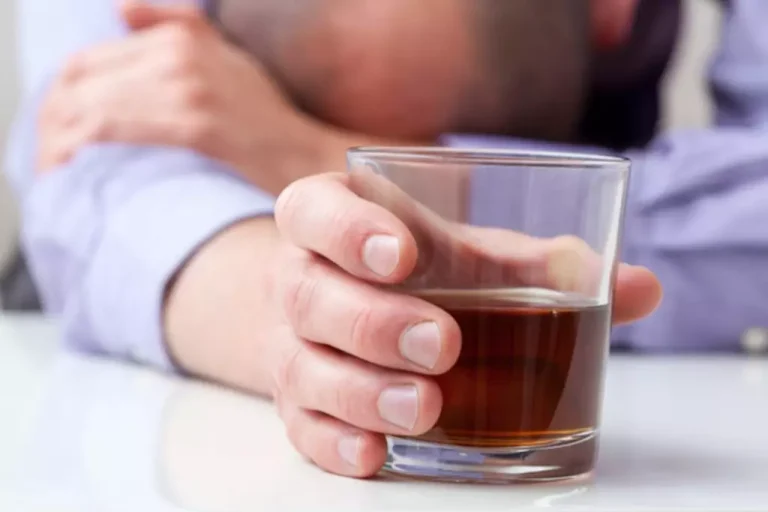
Alcohol withdrawal is caused by the abrupt cessation of alcohol consumption in patients with alcohol dependence or chronic alcoholism. Symptoms of alcohol withdrawal tend to peak 24 to 72 hours after your last drink. Go to the nearest emergency room or call 911 (or your local emergency service number) if you or a loved one has any concerning symptoms of alcohol withdrawal. The most effective way to prevent alcohol withdrawal syndrome is to avoid drinking or drinking only in moderation. When a person is detoxing from alcohol, the symptoms may begin anywhere from 6 hours to a few days after their last drink. For those trying to detox from alcohol, it is vital to do so under the supervision of a doctor, as the withdrawal symptoms may be severe.

Who Is At Risk For Alcohol Withdrawal Syndrome?
- Within 5 minutes, you’ll receive an email with these details – free of charge.
- Alcohol, a CNS depressant, stimulates the GABAergic system and, in acute intoxication, causes a range of clinical manifestations such as disinhibition, euphoria, and sedation.
- The production of these neurotransmitters is affected when a person stops or significantly reduces alcohol intake.
- The most severe symptoms tend to disappear within days, whereas less intense ones may last longer.
Alcohol withdrawal syndrome (AWS can cause a range of symptoms, from mild anxiety and fatigue to severe hallucinations and seizures. In extreme cases, it can be life threatening. Risk factors for alcohol use disorder include a family history of problems with alcohol, depression and other mental health conditions, and genetic factors. Doctors usually use a type of drug called benzodiazepines to reduce alcohol withdrawal symptoms. A hangover occurs when a person drinks too much alcohol at one time.
Stage 2: Moderate Withdrawal
If you have alcohol use disorder and want help, a healthcare provider can guide you to resources and rehabilitation programs to help you quit. Know that your provider will be there to support you, not to judge you. Alcohol withdrawal Cure for Alcohol Withdrawal Symptoms is a potentially serious complication of alcohol use disorder. It’s important to get medical help even if you have mild symptoms of withdrawal, as it’s difficult to predict in the beginning how much worse the symptoms could get.
- It is important to follow your healthcare provider’s recommendations regarding any prescription medications.
- Alcohol use disorder isn’t a condition that happens for just one reason.
- They should also make sure you attend your counseling appointments and visit the doctor regularly for any routine blood tests that may be ordered.
– Don’t go through withdrawal alone.
If you feel that you sometimes drink too much alcohol, or your drinking is causing problems, or if your family is concerned about your drinking, talk with your health care provider. Other ways to get help include talking with a mental health professional or seeking help from a support group such as Alcoholics Anonymous or a similar type of self-help group. The best ways https://ecosoberhouse.com/ to prevent severe symptoms after you stop drinking alcohol are close supervision by your doctor and treatment that usually includes benzodiazepines. The treatment aims to help relieve your symptoms, reduce the chance of complications and, if DTs are bad, save your life. Sedatives, usually benzodiazepines, are medications used to treat alcohol withdrawal and DTs.


Behavioral health treatment for alcohol problems is often (but not always) covered by insurance. In the United States, most states have low-cost or free rehabilitation programs for those who are uninsured. There are many support options available that can help guide you through alcohol withdrawal, as well as abstaining from alcohol after withdrawal. Individuals should be prepared to be uncomfortable during this period and have medical help available if needed. This is the period in which delirium tremens is most likely to occur, which requires immediate medical attention. The prognosis (outlook) for someone with alcohol withdrawal depends greatly on its severity.
- One of the priorities in treating this condition is to lower nervous system activity.
- It may be easier on your rehabilitation to skip visits with “drinking buddies” or avoid gatherings with a focus on drinking.
- The letter’s content should be encouraging and remind you why you are going through the challenge of detox in the first place.
Alcohol withdrawal syndrome occurs when a person with alcohol use disorder stops or suddenly decreases their alcohol intake. The only cause of DTs is withdrawal that happens when someone with alcohol use disorder stops drinking alcohol suddenly. They usually appear between one and three days after your last drink and are usually most intense four to five days after your last drink. Patients presenting with alcohol withdrawal syndrome should receive thiamine and folate supplementation as they are often nutritionally deficient. Many people with alcohol use disorder hesitate to get treatment because they don’t recognize that they have a problem.
Impact on your health

You don’t need to be diagnosed with alcohol use disorder in order to quit drinking. If alcohol is interfering with your health or your personal, financial, or professional life, consider quitting. For mild alcohol withdrawal that’s not at risk of worsening, your provider may prescribe carbamazepine or gabapentin to help with symptoms. It affects about 50% of people with alcohol use disorder who stop or significantly decrease their alcohol intake. AUD is the most common substance use disorder in the U.S., affecting 28.8 million adults.
